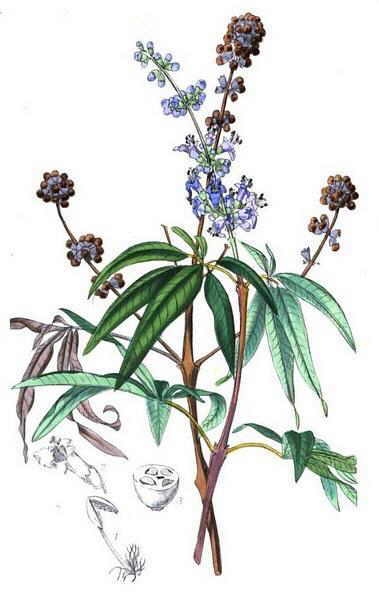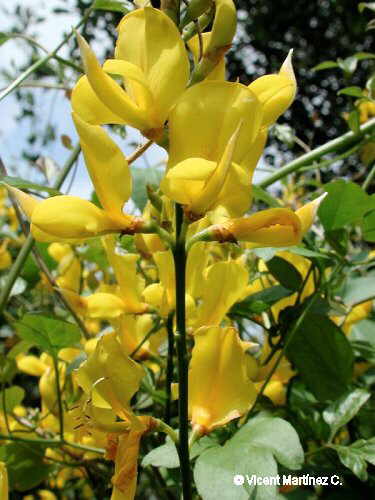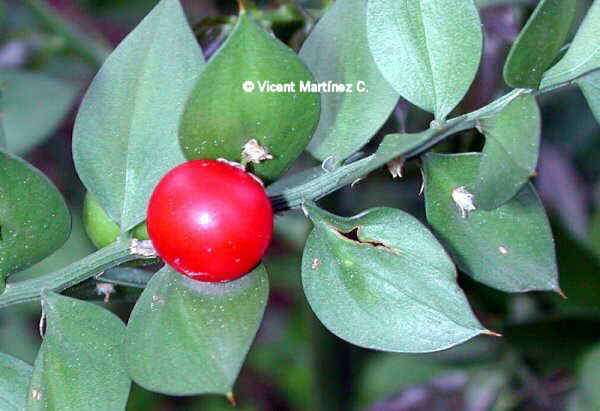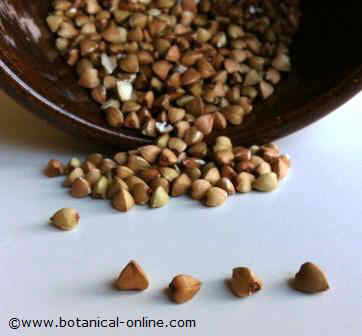Contents
Medicinal properties of cascara sagrada
Traditional medicinal uses of cascara sagrada
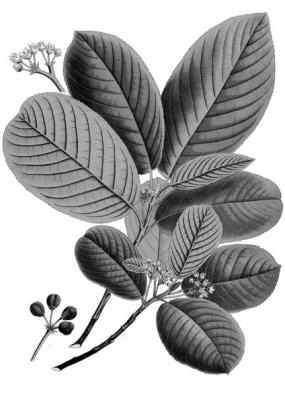 Traditionally, the bark of this plant has been used as a remedy to combat constipation and stomach pain by Native North Americans on the north coast of the western United States.
Traditionally, the bark of this plant has been used as a remedy to combat constipation and stomach pain by Native North Americans on the north coast of the western United States.
When Spanish explorers realized the properties of this plant, called it “cascara sagrada” = “sacred bark.” They themselves also used it to combat sleeplessness , by means of leaving a piece of dried bark in water overnight, and drinking the resulting liquid the next morning.
Although they did not know, there were some organic compounds in the bark of this plant, called anthraquinones, that gave this plant all these properties.
PROPERTIES OF ANTHRAQUINONES
Anthraquinones are used in herbal medicine as cathartic remedies, that’s to say, they accelerate defecation, but they also have laxative properties (they soften the stool) when given in smaller amounts.
They are very different in action to other laxatives obtained from other plants such as those of psyllium (Plantago psyllium) that belongs to the category of the so-called “mechanical laxatives”, These are much less aggressive than cathartic ones.
Anthraquinones are cathartics that are used to stimulate the intestine leading to the evacuation of feces, so they are therefore considered as stimulant laxatives (when given in small amounts) or purgative (when given in larger quantities).
Some plants, such as cascara sagrada (Rhamnus purshiana), alder buckhorn (Rhamnus frangula), senna leaves (Cassia angustifolia, Cassia senna), rhubarb (Rheum spp.), aloes (Aloe spp.), including Aloe vera, are very rich in anthraquinones.
The action of these products is done because anthraquinones act on the nerve endings causing further bowel movement (peristalsis). On the other hand, they are believed to also act on cells in the walls of the small intestine, increasing the production of fluids and minerals (especially potassium) and decreasing the absorption of certain minerals (sodium and chlorine) and intestinal fluids in the large intestine.
By increasing the volume of liquids in the large intestine, the pressure exerted on the intestinal wall causes a need to expel the stool.
Anthraquinones are used to increase depositions, though it should be noted that the usual use of these products is very risky.
Negative effects of anthraquinones
Among the possible negative effects of anthraquinones, we can mention the following:
- Used regularly, they cause dependence. The patient with constipation who usually uses them, gets her/his body used to the need to take them for his/her stools to become softer.Dependence also means that the person concerned must take increasingly larger amounts of these products so as them to have the required effect.
This leads to what is known as non-functional atonic colon, which is an anomaly caused by the excess of laxatives or diseases in which the colon loses muscular strength and is unable to expel stool, leading to chronic constipation.
- May be responsible for intestinal problems: Among the most characteristic of which are abdominal pain, nausea or vomiting, diarrhea, flatulence, etc.
- They can cause mineral, protein or fat deficiencies in the body, especially sodium or potassium imbalances, which may be responsible for other functional abnormalities such as hypotension or hypertension.In regard to potassium, the difficulty of absorption of this mineral can lead to a state of hypokalemia (presence of low levels of potassium in the blood) with the consequent possibility of the occurrence of abnormalities such as muscle weakness, cramps, arrhythmias, constipation, bowel obstruction, etc.
- The preparations of these plants can cause low intake of fat, which is manifested as greasy stools with foulsmelling (steatorrhea). This, in turn, can lead to a deficiency of liposoluble vitamins, that’s to say, those that require fats. (Vitamin C and all the vitamins of Vitamin B group)
- Likewise, the protein deficiency is due to a of poor absorption of them (protein-losing enteropathy)
- Development of rectal cancer? It has been theorized about the role that these plants exert on the development of cancer cells in the rectum, although, no study has concluded it.
- Abortion: It is estimated that these plants have abortifacient properties and therefore they are not suitable during pregnancy.
Is cascara sagrada good for constipation?
In case of constipation, because all these problems, most specialists suggest to choose other resources to deal with it. An adequate diet for constipation or other less aggressive laxatives such as psyllium, flaxseed or mallow, are preferred instead of using cathartics.
![]() More information on cascara sagrada.
More information on cascara sagrada.


